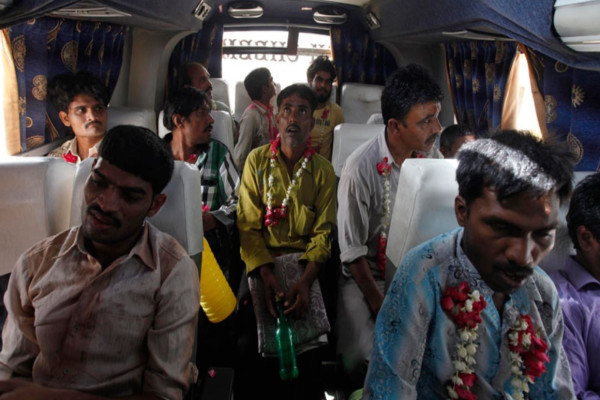
India and Pakistan today exchanged lists of civilian prisoners and fishermen held in each other’s custody. The simultaneous exchange took place via diplomatic channels in New Delhi and Islamabad, in accordance with the provisions of the 2008 bilateral Agreement on Consular Access. This exchange occurs annually on January 1 and July 1.
India provided details of 381 civilian prisoners and 81 fishermen believed to be Pakistani nationals, while Pakistan shared the names of 49 civilian prisoners and 217 fishermen believed to be Indian nationals, said a Ministry of External Affairs release.
The Indian government reiterated its call for the swift release and repatriation of all civilian prisoners, fishermen, and missing defense personnel held in Pakistan. India emphasized the need for Pakistan to expedite the release of 183 Indian prisoners and fishermen who have completed their sentences. Additionally, India urged Pakistan to grant immediate consular access to 18 individuals in Pakistani custody, believed to be Indian nationals, who have not yet been provided such access.
India also requested Pakistan to prioritize the safety and welfare of all Indian prisoners and fishermen awaiting release. Simultaneously, India reaffirmed its commitment to addressing humanitarian issues, urging Pakistan to verify the nationalities of 76 individuals in Indian custody believed to be Pakistani nationals, whose repatriation is delayed due to pending confirmation.
Since 2014, sustained efforts by the Indian government have resulted in the repatriation of 2,639 Indian fishermen and 71 civilian prisoners from Pakistan. This includes 478 fishermen and 13 prisoners repatriated since 2023.
Both nations have expressed their commitment to resolving humanitarian matters involving prisoners and fishermen, highlighting the importance of collaboration and timely action on these sensitive issues.
“Both nations must expedite administrative and judicial processes to ensure timely verification of nationality and reduce the backlog of undertrial cases,” said peace activist Ravi Nitesh.
“Additionally, the safety and healthcare of detainees must be prioritized, as there have been instances where individuals are repatriated only after their demise. A practical solution, particularly for detained fishermen, would be to facilitate their release at sea along with their boats,” says Nitesh, the founder of Aaghaz – e – Dosti, an outfit which has done extensive work on helping the families of Indians held in Pakistan find closure.
“It is encouraging to note that the recent government press release acknowledges critical issues related to nationality verification and the return of boats. Furthermore, the revival of the India-Pakistan Joint Judicial Committee, which has been pending for a long time, should be prioritized to address these matters effectively,” said Nitesh.
India and Pakistan also exchanged lists of Nuclear Installations and facilities, covered under the Agreement on the prohibition of Attack against Nuclear Installation and Facilities between India and Pakistan.
Under the Agreement, which came into force on 27 January 1991, the two nations inform each other of the nuclear installations and facilities to be covered under the Agreement on the first of January of every calendar year. This is the 34th consecutive exchange of such lists between the two countries, the first one having taken place on January 1, 1992, said a Ministry of External Affairs Press Release.
In a career spanning three decades and counting, Ramananda (Ram to his friends) has been the foreign editor of The Telegraph, Outlook Magazine and the New Indian Express. He helped set up rediff.com’s editorial operations in San Jose and New York, helmed sify.com, and was the founder editor of India.com.
His work has featured in national and international publications like the Al Jazeera Centre for Studies, Global Times and Ashahi Shimbun. But his one constant over all these years, he says, has been the attempt to understand rising India’s place in the world.
He can rustle up a mean salad, his oil-less pepper chicken is to die for, and all it takes is some beer and rhythm and blues to rock his soul.
Talk to him about foreign and strategic affairs, media, South Asia, China, and of course India.




